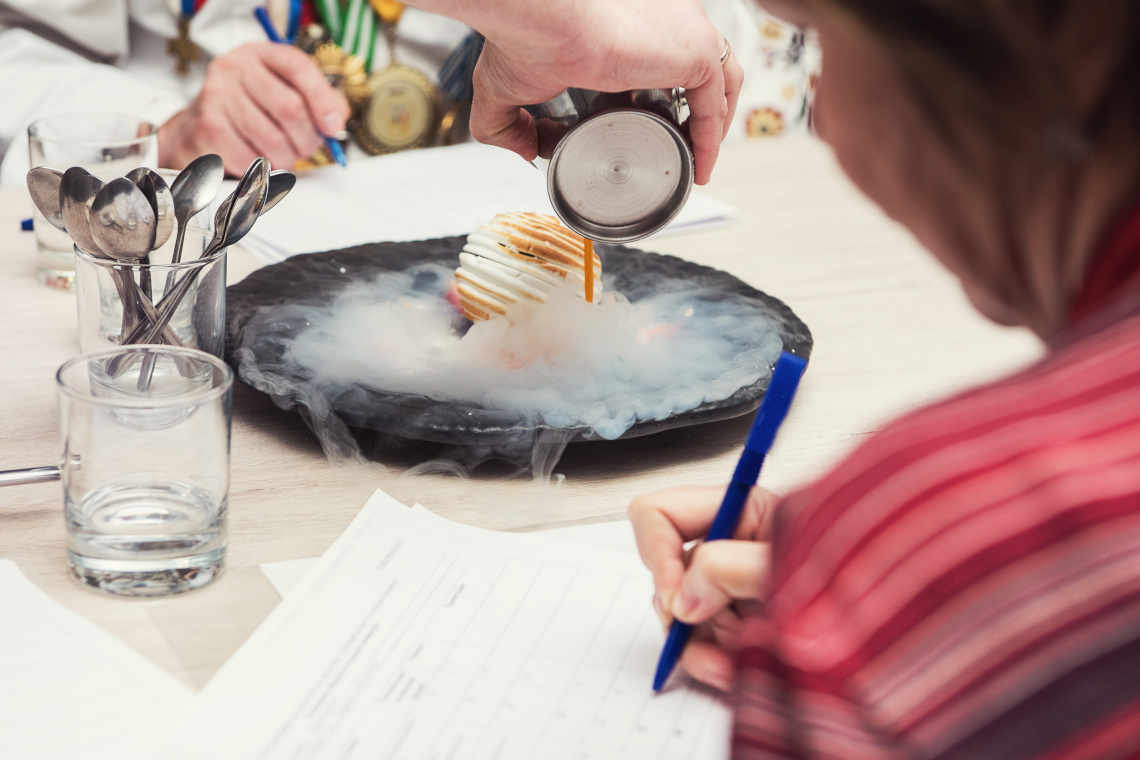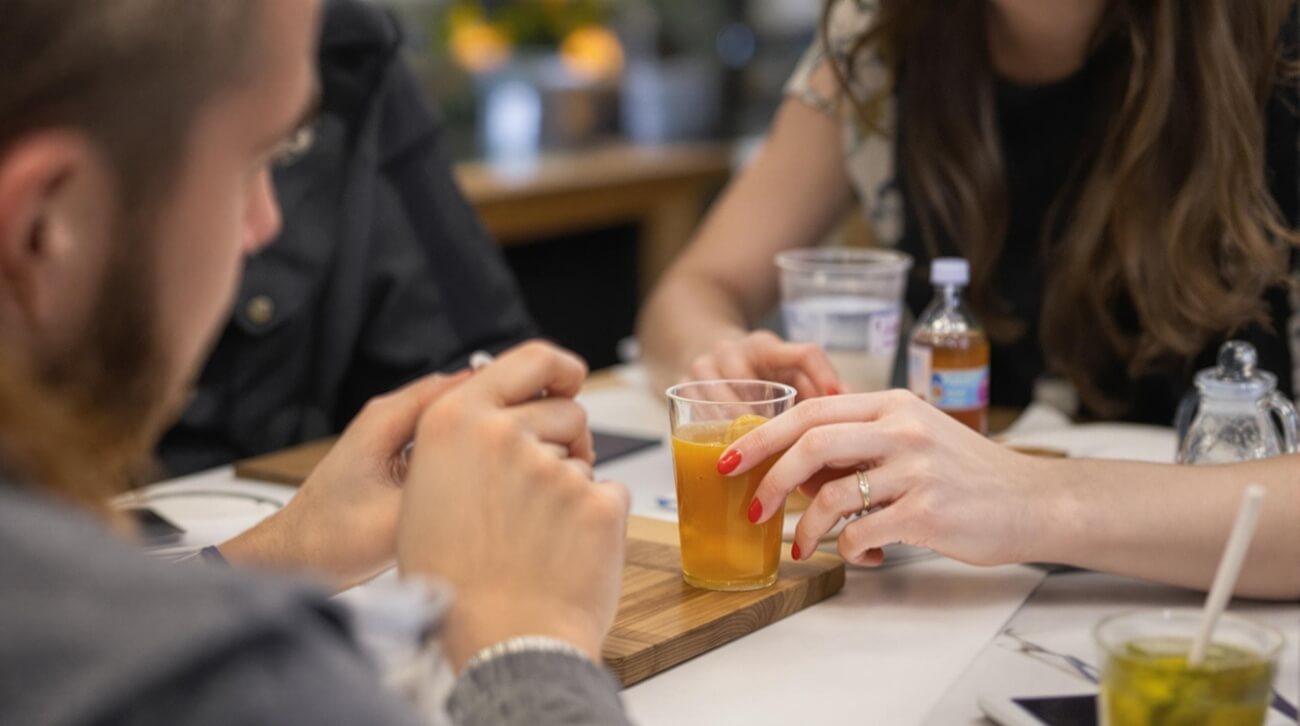Taste Testing Validation Market Research

In the highly competitive food and beverage development industry, how can businesses ensure the accuracy and reliability of their taste testing results? Taste testing validation market research is the answer.
As consumers become more aware of different brands, reliable data is crucial to ensure that the taste resonates consistently with target audiences. Thus, taste testing validation market research emerges as a cornerstone, providing businesses with the confidence that their product decisions are rooted in valid and trustworthy insights.
Understanding Taste Testing Validation
Taste testing validation market research revolves around ensuring that the methods and results of taste tests are reliable and accurate. Validation refers to the process of confirming that the taste tests measure precisely what they intend to.
Its rigorous focus on control, standardization, and verification distinguishes itself from regular taste tests. Taste testing validation market research goes beyond collecting feedback and dives deeper into ensuring that external factors, biases, or unforeseen influences do not skew the results.
Why Is Taste Testing Validation Important?

The food and beverage sector demands a heightened level of precision – and that’s why taste testing validation market research plays an indispensable role in meeting regulatory standards and enhancing product quality… But, why is its importance so pronounced?
- Reliability of Results: Taste tests without validation might offer insights, but how certain can a business be of its repeatability? Market research ensures that a product’s reception isn’t just a one-time phenomenon but can be replicated with similar audiences and settings.
- Data-Driven Decision-Making: In an industry where margins can be thin, making informed decisions is paramount. The robustness of taste testing validation market research allows businesses to confidently move forward, knowing their strategies are rooted in reliable data.
- Trustworthiness: For stakeholders (investors, partners, or even consumers), knowing that a product has undergone rigorous taste testing validation enhances trust. It clearly conveys that the business values accuracy and is committed to delivering consistent quality.
- Cost Efficiency: Mistakes in the food and beverage sector can be costly. Launching a product based on flawed data can result in significant losses.
Benefits for Businesses Employing Taste Testing Validation Market Research
Businesses are under constant pressure to innovate while ensuring the relevance and appeal of their products because of the subjective nature of taste and flavors. This is where taste testing validation market research becomes a game-changer. Here are the compelling benefits businesses can harness by employing this rigorous research method:
- Enhanced Confidence in Product Launches: With data from taste testing validation market research, businesses can launch new products or tweak existing ones with greater confidence, knowing they’re grounded in verified consumer preferences.
- Data-Driven Innovations: In an era where data is king, having reliable and validated insights allows businesses to drive innovation that is not just creative but also aligned with actual consumer preferences.
- Optimized Marketing Strategies: Knowing that a product’s flavor profile is validated gives marketing teams a solid foundation. They can craft compelling marketing strategies, positioning the product as one that truly meets consumer desires, based on solid taste testing validation market research.
- Strengthened Brand Reputation: Consistently offering products that resonate with consumers enhances brand credibility. When consumers know that a brand’s offerings are backed by validated research, it increases trust and loyalty.
- Reduced Business Risks: Venturing into new flavor territories or tweaking established ones comes with inherent risks. Taste testing validation market research helps mitigate these risks by ensuring that business decisions are based on robust and reliable data.
- Tailored Product Offerings: Different markets might have varied taste preferences. Through validated research, businesses can tailor their offerings to cater to regional or demographic-specific tastes, ensuring broader appeal.
Opportunities

As consumer preferences continue to evolve, businesses in the food and beverage industry must adapt to meet these dynamic needs. By leveraging taste testing validation market research, businesses can uncover several untapped opportunities:
- Entering New Markets: Expanding into new demographics or geographical markets is challenging. However, through market research, businesses can gain insights into local flavor preferences, enabling them to adapt their offerings accordingly and ensure a successful market entry.
- Product Line Extensions: Existing products can be innovated by introducing new flavors or variants. Validated taste tests can identify which potential extensions will resonate most with target consumers.
- Personalized Consumer Experiences: With the rise of personalized nutrition and diets, there’s an opportunity to use taste testing validation market research to develop products tailored to niche consumer segments, catering to specific taste preferences or dietary needs.
- Engagement through Transparency: Modern consumers value transparency. Businesses can showcase their commitment to delivering truly consumer-centric products by sharing insights and results from their validated taste tests, enhancing brand trust.
- Sustainability and Ethical Preferences: More consumers are making choices based on sustainability and ethical production. Businesses can validate the acceptance of eco-friendly or ethically sourced ingredients through taste testing to ensure they meet consumer flavor expectations.
- Collaborative Innovations: Collaborate with chefs, food scientists, and nutritionists to develop unique and appealing products. Market research can provide feedback on these collaborative innovations, ensuring they align with consumer tastes.
- Packaging and Presentation Feedback: While the primary focus is on taste, how a product is presented can influence perception. Businesses can validate the taste and overall experience – including packaging and presentation – ensuring a holistic positive response.
- Timely Adaptations: Regularly conducting market research can identify shifts in consumer preferences early, allowing businesses to adapt swiftly.
Challenges of Taste Testing Validation in Market Research for Businesses
While taste testing validation market research offers many benefits and insights, it’s not without its challenges. Businesses seeking to harness their power must navigate several hurdles such as:
- Subjectivity of Taste: Every individual’s palate is unique, making it challenging to standardize results. What one individual finds delightful, another might find distasteful. Aggregating these varied responses to derive meaningful insights can be challenging for market researchers.
- Recruitment of Suitable Participants: Ensuring a diverse and representative sample is crucial. Finding the right mix of participants who mirror the target market’s demographics and preferences can be resource-intensive.
- Cultural Differences: As businesses expand globally, understanding and accounting for cultural variations in taste preferences becomes essential. However, it’s challenging to standardize taste tests across diverse cultures.
- Technological Integration: While technology can enhance taste testing validation market research, integrating the latest tools and platforms requires expertise and can pose challenges regarding training and adaptability.
What Makes SIS International a Top Taste Testing Validation Market Research Company?
SIS International is a trusted leader in taste testing validation, offering businesses precise and reliable insights to ensure their products align with consumer expectations. With over 40 years of market research experience, state-of-the-art methodologies, and a focus on actionable results, SIS helps brands succeed in competitive industries.
Expertise in Taste Testing Validation
Taste testing validation requires a deep understanding of consumer preferences and advanced research techniques. SIS excels in this field, using proven methodologies to confirm product quality, consistency, and appeal, ensuring your products meet market standards.
State-of-the-Art Research Facilities
Our New York-based facilities have cutting-edge sensory analysis tools and controlled environments. These resources enable SIS to conduct precise evaluations, ensuring that your products are validated with the utmost accuracy.
Diverse Consumer Panels for Broader Insights
New York’s diverse population allows SIS to recruit participants from varied backgrounds, lifestyles, and demographics. This ensures our taste testing validation reflects the preferences of a wide and representative consumer base.
Tailored Testing Solutions
Every product and brand is unique, and SIS customizes its validation processes to align with your goals. Whether testing new recipes, reformulated products, or variations across markets, we design our studies to deliver insights that meet your needs.
Over 40 Years of Market Leadership
SIS has been a pioneer in market research for decades. Our extensive experience ensures that industry expertise, rigorous processes, and proven methodologies back your taste testing validation.
Affordable, High-Quality Research Services
We offer premium taste testing validation at competitive rates, providing exceptional value to businesses of all sizes. SIS ensures that world-class research is accessible without compromising quality or results.
Rapid and Efficient Turnaround Times
In fast-moving industries, timely insights are critical. SIS delivers results quickly, enabling you to make data-driven decisions and adjust strategies without delays.
Insights That Drive Product Excellence
SIS doesn’t just validate your products—we provide actionable recommendations. Our insights help you refine flavors, improve consistency, and enhance overall appeal to ensure your products meet and exceed consumer expectations.
Commitment to Objective Research
Taste testing validation demands impartiality, and SIS is dedicated to providing unbiased results. Our methodologies focus purely on consumer perceptions, ensuring accurate and trustworthy findings.
A Strategic Partner for Long-Term Success
SIS goes beyond research execution by collaborating with clients to ensure their success. From project planning to detailed reporting and recommendations, we act as a strategic partner invested in your product’s success.
Our Facility Location in New York
11 E 22nd Street, Floor 2, New York, NY 10010 T: +1(212) 505-6805
About SIS International
SIS International offers Quantitative, Qualitative, and Strategy Research. We provide data, tools, strategies, reports, and insights for decision-making. We also conduct interviews, surveys, focus groups, and other Market Research methods and approaches. Contact us for your next Market Research project.

